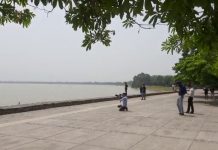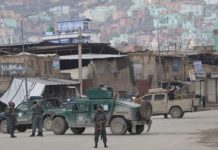China has installed an unmanned automatic weather observation station near its border with India in Tibet to support its Army in the event of a live fire conflict with New Delhi. The development comes approximately an year after the Doklam standoff. Meanwhile, if reports are to be believed, Beijing plans to set up more such facilities in future in the plateau bordering India.
The station along the Indian border is situated at Yumai township under Lhunze county of Shannan Prefecture in Tibet and could provide data to help with transportation and communication in national defence. It could also offer support during regional live-fire conflicts, the state-run Global Times reported.
According to a statement on the official website of the Tibet weather bureau, the station will provide strong meteorological support for national defence and further promote border development as well as military-civilian integration.
Regional weather is an important factor that could influence the take-off and landing of aircraft and the launch of missiles during a battle. A small weather observation station could provide such information, military expert Song Zhongping told the daily on Monday.
India and China, who fought in 1962 over their disputed border, were locked in over a two-month military stand-off last year near their border with Sikkim, which straddles Tibet.
“The station can observe six factors – air temperature, air pressure, wind speed, wind direction, humidity and precipitation – with more accuracy than before,” said Tashi Norbu, a technician in charge of the station.
With nine households and 32 residents, Yumai is China’s smallest township in terms of population. It is located in the southern foothills of the Himalayas and affected by the monsoon climate of the Indian Ocean.
The only road linking Yumai and the outside world has been under construction since 2017. More weather stations will be set up when the road is completed, said Dawa, the secretary of the Communist Party of China’s Yumai committee.
He said the station would help a lot in local pasture and road construction.
“Residents will enjoy better meteorological services to better safeguard every blade of grass and tree on the territory of the motherland,” Dawa said.




































